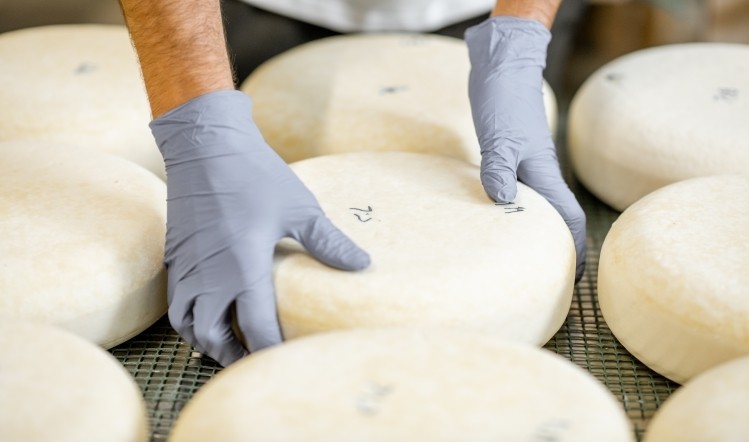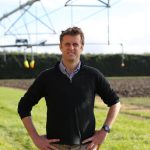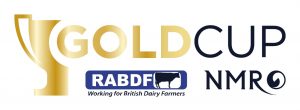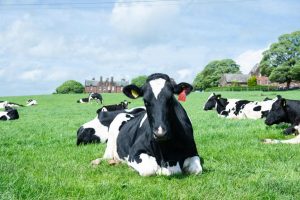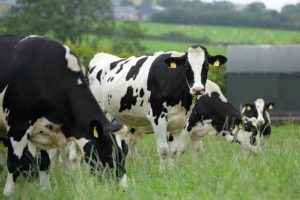
“The biggest struggle for the industry was at the outset of COVID when we saw the resulting rapid change in the market, such as the shutting down of the out-of-home channel overnight,” Dr Judith Bryans, chief executive of Dairy UK, tells Food Manufacture.
Thankfully, several factors helped alleviate the initial difficulties, she says. “The industry was quick to help itself and communicated to, and supported, its customers and consumers.”
The sector was also strengthened by Government support. In May 2020, the Department for Environment, Food & Rural Affairs (DEFRA) announced England’s dairy farmers would be able to access up to £10,000 each to help them overcome the impact of COVID-19.
This followed action to temporarily relax some elements of UK competition law to help suppliers, retailers and logistics providers of dairy products work more closely to overcome industry-wide problems.
£1m campaign to boost milk consumption
The Government also backed a £1m campaign to boost milk consumption and help producers use their surplus stock.
“Intervention from Government to support the sector was vital in helping processors meet the challenges, from grant funds for businesses affected to derogations on drivers’ hours and competition law,” says Bryans.
“Without swift action from Government and industry, it would have been a more difficult time.
“We are grateful to the Government for this support, for maintaining strong communication with the industry throughout the pandemic as well as for its mass testing initiatives.”
COVID secure
Even with Government support, dealing with the curveballs thrown by the pandemic has required hard graft on the part of dairy suppliers.
“The biggest challenge during the pandemic has been operating in a COVID-secure way to protect members and staff and to maintain business continuity, whilst implementing effective contingency planning,” says a spokesperson for farmer-owned cooperative First Milk.
“This has been more difficult whilst delivering capital projects, with additional contractors on sites and challenges around the supply of equipment due to lockdown restrictions and impact from suppliers furloughing staff.
“The cheddar market has seen additional demand in the retail sectors, with some demand peaking very rapidly, particularly during the lockdown periods. But we’ve been able to work with our customers and adapt our production and maturation planning to address this.”
‘Unprecedented growth’
Bill Hunter, managing director of Ornua Foods UK, says this ‘unprecedented growth’ in demand for cheese was his company’s biggest challenge during the pandemic.
This was met by creating additional capacity and some ‘excellent collaboration’ with retailers, who agreed to range rationalisation to increase manufacturing efficiency.
“The fantastic commitment of our staff during the pandemic has also been key in enabling us to keep up with unprecedented growth in demand for our products,” says Hunter.
“Cheese, by its very nature, requires a period of maturation before it is ready to supply to customers.
“With demand having surged at short notice during the initial lockdown, we were able to work closely with our supply base to manage cheese maturity profiles carefully and meet the increased retail demand.”
Operational challenges of the pandemic
Acknowledging the operational challenges of the pandemic from a personnel perspective, Hunter adds: “The top priority has been to ensure the health, safety and wellbeing of our staff.”
On a similar note, Richard Clothier, managing director of Wyke Farms, says: “There were initial challenges around availability of staff and instigating social distancing to give people the confidence that we could provide a COVID safe environment.
“This has proved just as challenging outside of the workplace as it has inside. For example, having spent the past years encouraging car sharing to reduce traffic on site and improve environmental impact, we now find ourselves discouraging it!”
Investment and efficiency
Despite pandemic-related challenges, there is evidence of solid investment – and efficiency savings – by processors and suppliers.
First Milk has invested about £30m since 2018 to drive efficiency at its cheese processing sites in Haverfordwest and at the Lake District Creamery (LDC), of which about £12.5m is being invested in the current year.
“This has increased our processing capacity by over 20% and allowed us to reduce our energy and water use, helping us to meet environmental targets as we work towards net zero by 2040 at the latest,” the company spokesperson says.
Ornua Foods UK, meanwhile, has made ‘significant investments’ in equipment and capabilities at its cheese cutting and packing facility in Leek, according to Hunter.
Investment and efficiency
Despite pandemic-related challenges, there is evidence of solid investment – and efficiency savings – by processors and suppliers.
First Milk has invested about £30m since 2018 to drive efficiency at its cheese processing sites in Haverfordwest and at the Lake District Creamery (LDC), of which about £12.5m is being invested in the current year.
“This has increased our processing capacity by over 20% and allowed us to reduce our energy and water use, helping us to meet environmental targets as we work towards net zero by 2040 at the latest,” the company spokesperson says.
Ornua Foods UK, meanwhile, has made ‘significant investments’ in equipment and capabilities at its cheese cutting and packing facility in Leek, according to Hunter.
Cheese slicing and grating
These have included a new high-tech cheese slicing line and the further expansion of the company’s cheese grating capabilities. In addition, new, energy-efficient air temperature control has enabled the site to reduce energy consumption by 10%, says Hunter.
“The new processing equipment went ‘live’ in January, delivering an additional 7,000 tonnes of slicing and grating capacity and bringing total annual production capacity at Leek to over 110,000 tonnes,” he adds.
“In addition to boosting capacity, the new slicing line – one of four at Leek – has delivered greater efficiencies and yield improvements.
“The new line has a reduced labour requirement and improved throughput thanks to it handling four sticks of cheese from input to output.” That has meant ‘less manual handling and labour but an improved throughput of up to 15% depending on the product’.
Further investments at Leek
Ornua Foods UK’s combined investment undertaken over the past 12 months totals £3m, according to Hunter. However, the company is not stopping there. “In line with our longer-term strategic growth plans, we are set to make further investments at Leek, which will continue to give us a competitive advantage in the marketplace,” Hunter adds.
Wyke Farms has also not shied away from putting cash down now in order to deliver better returns in the future, Clothier explains.
“We have invested in pallet-racked finished product storage for export orders, so that we can consolidate full containers for export. We have also invested in effluent treatment and energy efficiencies, and we have invested further in solar arrays over the year to increase our daytime power generation.”
Environment matters
Wyke Farms’ onus on environmental efficiency reflects the industry’s push for a greener future.
The Dairy Roadmap is a Dairy UK-led initiative to reduce the sector’s environmental footprint. That’s not only about cutting greenhouse gas emissions, waste, and other pollutants but also improving efficiency in water and energy consumption.
“Since 1990 the Dairy Roadmap has delivered a 24% reduction in greenhouse gas emissions and huge efficiencies in water and energy efficiencies, as well as waste, to name but a few areas,” says Bryans.
“In the last 18 months, the Roadmap has been undergoing a review to ensure it remains at the forefront of driving forward continual environmental improvement within the dairy sector.”
Net zero commitments
Bryans adds: “Dairy processors are engaged on sustainability and environmental improvement schemes within their businesses – including net zero commitments. Dairy farmers are also committed to making even more environmental improvements.”
That certainly appears to be the case but First Milk emphasises the need ‘go further, faster’. The company has recently committed to achieving absolute net zero by 2040 at the latest.
“We are also working to reduce water use, impact on the environment and water quality, with unique nutrient offset programmes working around both our creameries with local farmer members working to offset factory discharges completely,” the company spokesperson says.
“We recently achieved zero food waste to landfill at our Haverfordwest site and are making good progress in this area at LDC too.
Combined heat and power, anaerobic digestion
“We have combined heat and power (CHP) plants at both sites to improve energy efficiency. And we have invested in an anaerobic digestion (AD) facility next to our LDC site that can help us move toward renewable energy utilisation.”
At Ornua Foods UK’s Leek plant, the previously mentioned investment in energy-efficient air temperature control equipment has removed the use of fluorinated greenhouse gases in the main cooling system. Chillers use CO2 as an alternative medium, explains Hunter.
“The site also commissioned an energy metering and monitoring system that will give greater visibility of consumption and will enable actions to be taken to reduce absolute usage and improve our intensity metric,” he adds.
Wyke Farms’ Clothier says: “There’s a huge focus on environmental issues such as waste streams, water usage and lowering carbon footprint at present. Achieving these things can lead to growth and sales opportunities.”
It’s encouraging to know the dairy sector hasn’t been distracted from tackling the environmental issues it faced at the start of 2020 while managing the challenges COVID-19 raised.
Sycamore handles Saputo’s lockdown upgrade
Confronted by the need to improve efficiency and satisfy pandemic-driven demand, in March this year, Sycamore Process Engineering announced the completion of a major upgrade project at Saputo in Davidstow. It installed the plant’s largest cleaning-in-place (CIP) set to date.
Sycamore claims the new system significantly shrinks the time necessary for cleaning and offers additional flexibility on CIP cycles, boosting production time.
Before finishing the project, the Saputo team completed a CIP turnaround five to six hours ahead of its normal production window. The new multi-tank, multi-channel system has cut that time to less than four hours.
Sycamore secured the project in February 2020 just ahead of pandemic restrictions and the first lockdown, and were tasked with the design, build and installation of the system.
The initial design work was completed in early March 2020, followed by making and delivering the new equipment during the summer of 2020.
Work was able to continue during both lockdowns with increased focus on on-site safety and social distancing measures. Installation and commissioning were successfully completed in a six-day shut down during the second UK national lockdown.
Installation and commissioning
Paul Manning, project director at Sycamore Process Engineering, says all feedback to date from the site-wide team at Saputo has been positive and well received.
“CIP systems have been around for years,” says Manning. “The innovation comes when sourcing pumps, valves, and instrumentation to ensure all process parameters are met and are in line with our customers’ expectations.
“Today, all industries we supply are in a period of growth, are trying new SKUs [stock keeping units] and there is a real focus on sustainability. Helping our clients improve consistency, minimise waste, maximise efficiency and reduce their carbon footprint with our designs will help shape the future.
“Many companies are selecting technology such as membrane filtration for increased yield and decreased waste, heat recovery systems or simply upgrading old systems to help take their products to the next level and generate trust from the consumer.”
